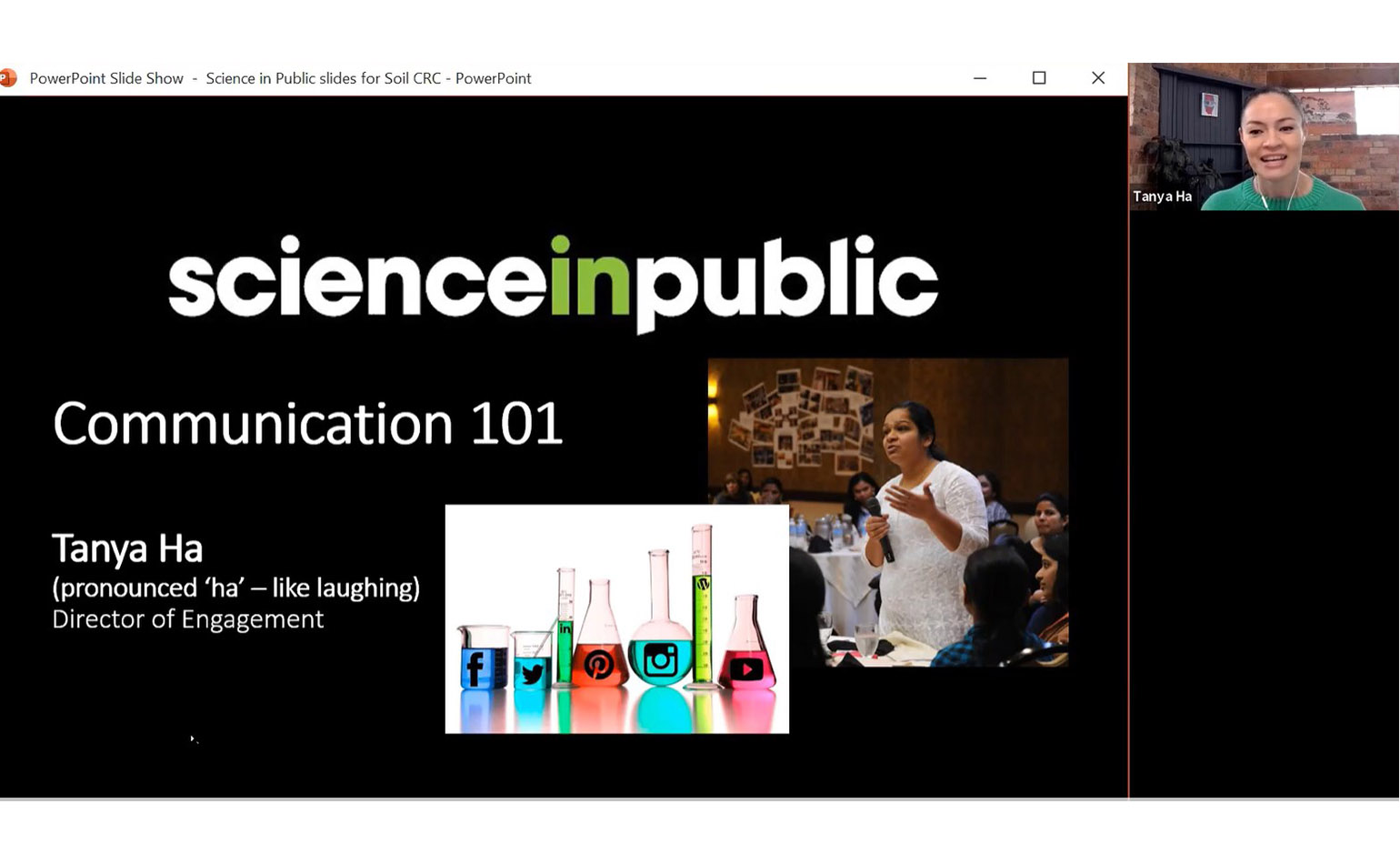The Soil CRC PhD student cohort participated in a workshop at the end of March where they learned about communicating their research and gained some valuable career insights from some of our most experienced researchers.
The group of Soil CRC PhD students took part in the online workshop which was run by Tanya Ha from Science in Public, Australia’s largest national science communications and public relations consultancy on strategic and purposeful communication.
The first session on research communication included:
- Identifying why you want to communicate (e.g., sharing information vs educating vs advocating)
- Using the most appropriate language, approach and platform for your purpose and audience
- Crafting an online presence that supports your communication goals (e.g., social media, blurbs/online profiles, and media releases)
- Developing an “elevator pitch” to succinctly explain your research
- Developing a strategic communication plan and communication toolkit
The session was extremely useful for the students. One student who had never used Twitter before, recognised how useful Twitter could be for their career and set up their profile before the day had even finished!
In the second session, there was a panel discussion with Dr Paul Greenfield (Soil CRC Chair), Associate Professor Catherine Allan (Soil CRC Program Leader), Dr Stephen Carr (Director, Soil CRC Board) and Professor Roger Swift (Director, Soil CRC Board).
This was intended to enhance the connections within the Soil CRC but also to provide insight into a range of career pathways and profession experiences to help the students maximise their PhD experience and professional development through their involvement with the Soil CRC.
The panel shared their experience and gave some valuable advice to the students.
This included:
- The importance of engaging with and learning from people from different disciplines, industries, countries, and environments; you gain so much from being exposed to different ways of thinking and doing things.
- The importance of having a plan and being strategic about your activities and connections, but also being flexible and prepared to take opportunities when they arise.
- The importance of being able to communicate effectively with different groups – understanding how people will interpret what you say, seeing things from someone else’s perspective and communicating in a way that’s relevant to them.
- The importance of enjoying what you do and having a love of learning – both learning about your specific research area, but also learning about the broader context in which your research sits.
- The importance of having transferrable skills, including communication skills.
- The benefit of being part of a CRC
Student Coordinator Dr Cassandra Wardle said it was fantastic to hear such real stories from the panel.
‘It’s so easy to look at a successful person’s career path and see all the connections and think it was all perfectly planned out, but the panel members had such relatable and very human stories of their career trajectories,’ she said.
An important aspect of all CRCs, including the Soil CRC, is building capability for Australia’s future through the training of postgraduate students. The Soil CRC has a target of graduating 40 PhD students over its 10 year duration, each of whom will have advanced skills in working with industry and end users, especially in relation to soil outcomes.

